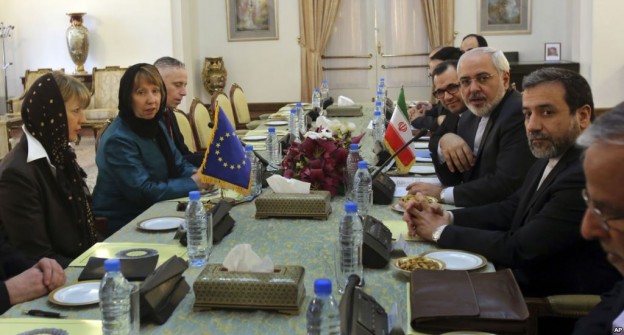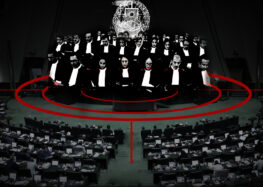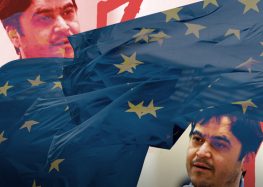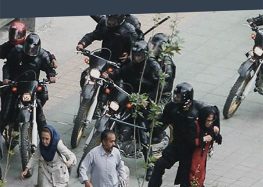“EU Must Stand Firm Despite Hardliners’ Fury”

EU foreign policy chief Catherine Ashton and her delegation during her March 2014 negotiations with Iranian foreign minister Javad Zarif in Iran.
Hardline officials in Iran have lashed out at the European Union after the EU Parliament’s passage of a resolution that called for all EU members to “mainstream” human rights in their relations with the Islamic Republic.
These officials were already furious over EU foreign policy chief Catherine Ashton’s visit with activists during her recent trip to Iran. With the passage of the resolution, which unsparingly criticized the state of human rights in Iran, hardliners have aggressively reaffirmed their redlines: human rights is not up for negotiation.
“A political faction in Iran is broadcasting their insecurity with these remarks. The EU must stand firm despite the hardliners’ fury,” said Hadi Ghaemi, Executive Director of the International Campaign for Human Rights in Iran.
“They lost the election, and now they are trying to dictate the terms of the country’s foreign relations. The world must stand with the millions of Iranians who clearly spoke with their vote for the normalization of the country’s international relations. Discussion of the human rights situation in Iran is part and parcel of this normalization,” Ghaemi added.
The intensity of the vitriol coming out of Tehran reflects the unease felt by hardliners who view any call for respecting the rights of Iranian citizens as an existential threat. It also brings into sharp relief the line the Rouhani administration must walk: it may have won a mandate from the Iranian citizenry for domestic reform through its electoral victory in June 2013, but it has been given a mandate only to negotiate the nuclear issue by the country’s Supreme Leader, Ayatollah Khamenei.
The Campaign notes that Iranian officials, including the president, foreign minister and diplomats, visit with any group or individual of their choice during their visits to Europe and the US. Yet in an interview with Fars News Agency, Seyed Hassan Naghavi, the Spokesperson for the Iranian Parliament’s National Security and Foreign Relations Commission, said that the Iranian government should have ended Ashton’s trip when she met with a group of women activists, “kicking her out” of the country.
Naghavi told Fars that the resolution’s approval is a clear indication of the EU Parliament’s interference in the domestic affairs of Iran. Referring to the resolution’s assertion that human rights issues must be pursued simultaneously with the nuclear negotiations, Naghavi said, “As the Islamic Republic of Iran announced from the beginning, Iran’s negotiations with 5+1 is only about the nuclear issue and we will not allow any other subjects to be added to it…. Our nuclear negotiations team has also been told that if subjects outside the nuclear issue are brought up, they are not allowed to negotiate.”
Mansour Haghighatpour, who serves as Deputy Head of the National Security and Foreign Affairs Commission of the Parliament, said, “Henceforth, Iran should reconsider preventing the transfer of drugs to Europe, in order to teach the European governments a lesson.”
However, one prominent Iranian journalist in Tehran told the Campaign, “I believe meetings with European diplomats is very useful because they [the Europeans] will have more accurate information about the domestic situation [inside Iran].”
The Campaign welcomes the EU Parliament’s resolution, as well as the recent focus by the UN Human Rights Council on the situation of human rights in Iran, and urges all international actors to fully integrate support for human rights in their relations with Iran.






